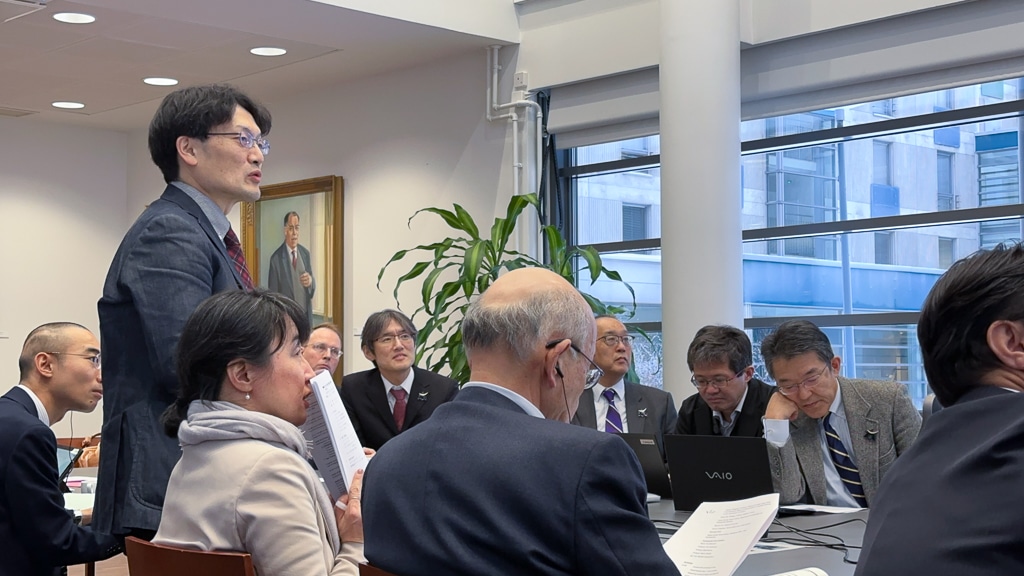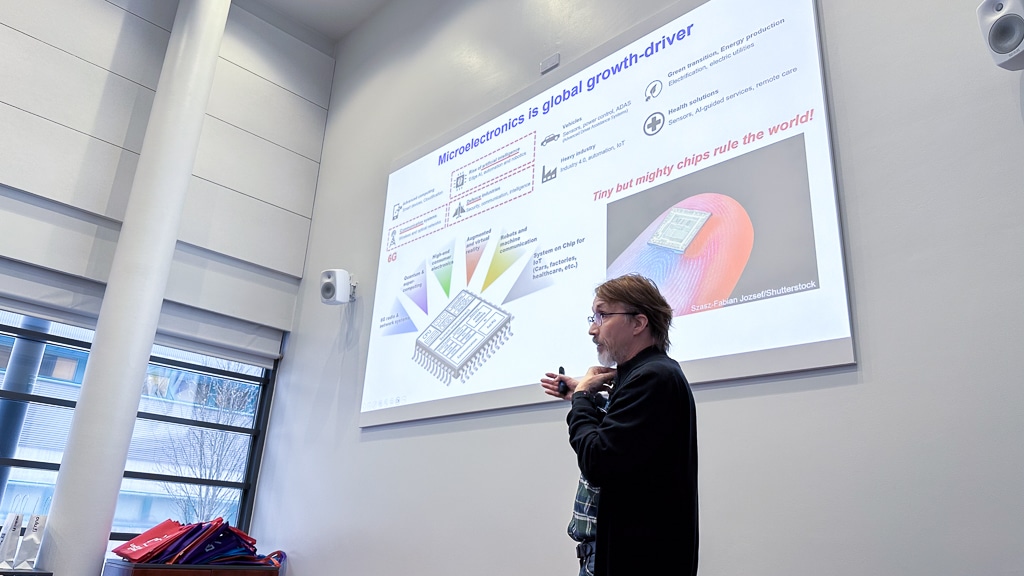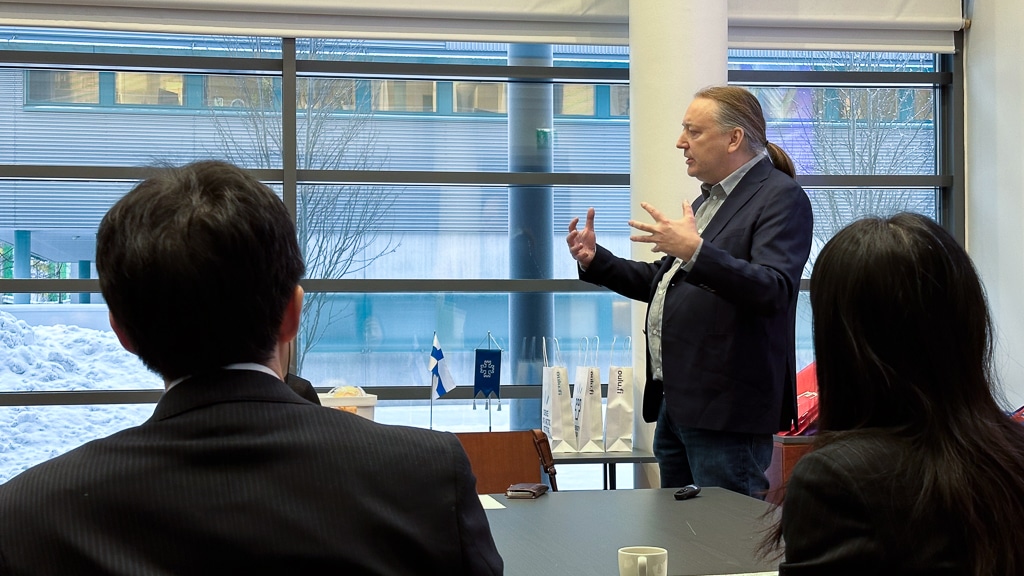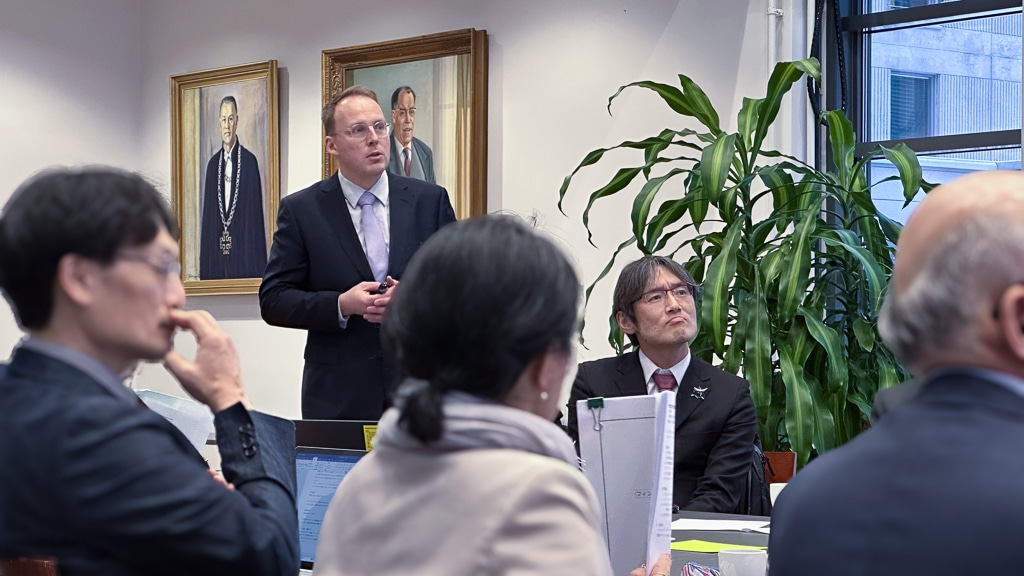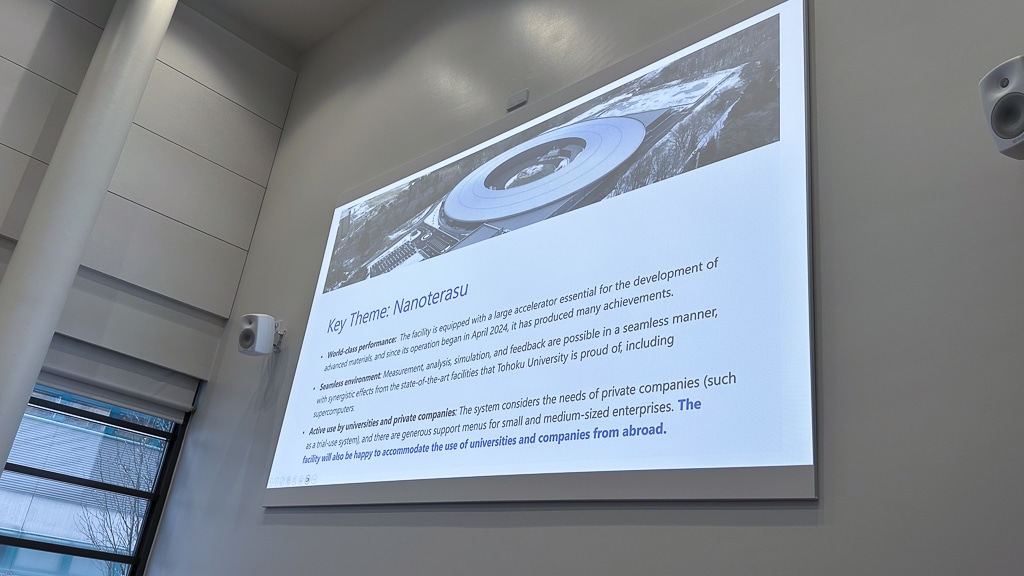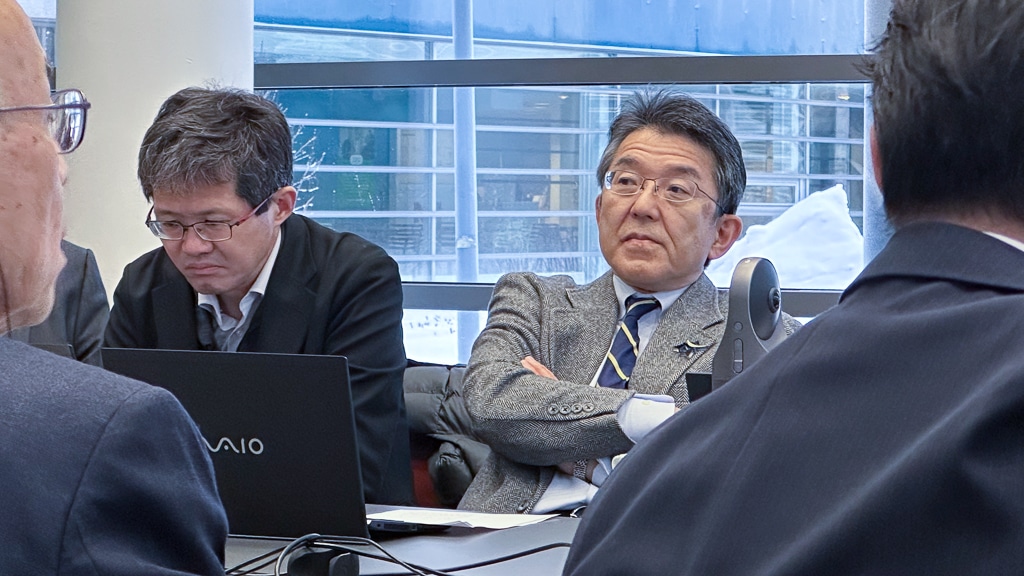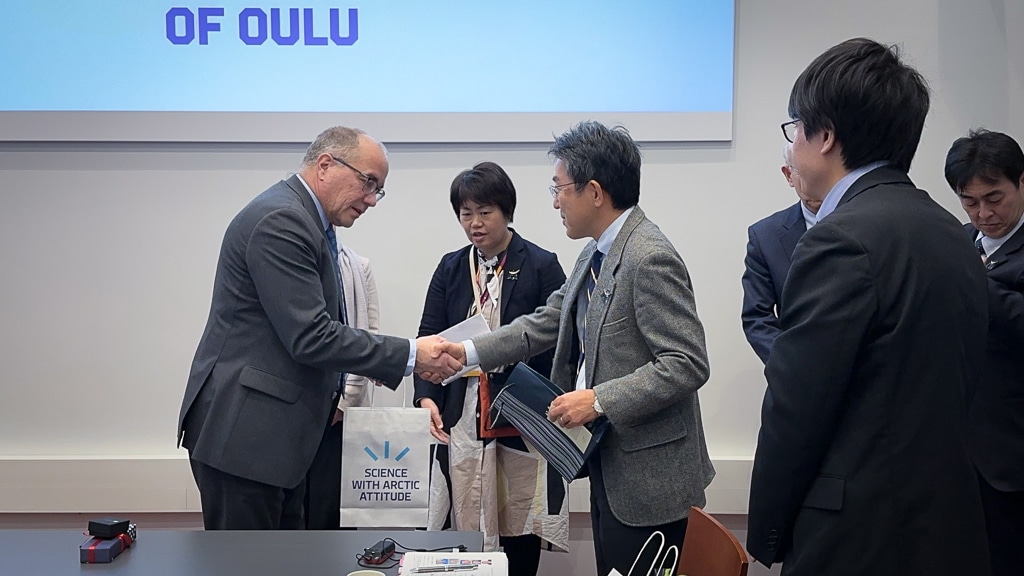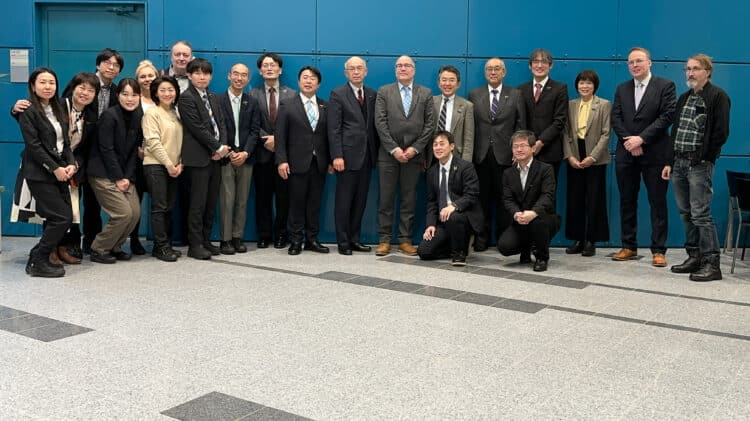
City of Sendai Delegation Visits the University of Oulu for Strategic Collaboration
On January 13, 2024, the University of Oulu welcomed a distinguished delegation from the City of Sendai, Japan, for a collaborative visit hosted by Rector Arto Maaninen. Led by Vice Mayor Shinichi Takahashi, the visit aimed to explore strategic partnerships in research, technology, and education while strengthening ties between the two cities. Senior leadership from Sendai’s Economic Affairs Bureau and City Assembly and representatives from Tohoku University Hospital participated in the discussions.
During the visit, Yasufumi Shiraiwa, Senior Director of the Innovation Promotion Department, presented Sendai’s innovation ecosystem, emphasising three key developments: the Nanoterasu synchrotron radiation facility, the Tohoku University co-creation centres, and the city’s startup acceleration programs. He described Nanoterasu as a cutting-edge research facility that has already attracted over 150 research projects since its official launch in April 2024. Shiraiwa highlighted Sendai’s strategy for supporting startups and advanced technologies, particularly in health technologies, semiconductors, and AI, aiming to foster a globally competitive innovation hub in collaboration with Tohoku University.
The University of Oulu presentations followed, showcasing expertise in key areas of mutual interest.
Professor Timo Rahkonen presented the University of Oulu’s expertise in microelectronics research, focusing on the institution’s long-standing work in circuit design and semiconductor technologies. He highlighted collaborative opportunities related to semiconductor advancements and open microelectronics design, drawing connections between the University’s research and Sendai’s innovation efforts, particularly in semiconductor manufacturing and MEMS technologies. Rahkonen also referenced the university’s experience with spintronics and low-power semiconductor hubs, areas of shared interest given Sendai’s emphasis on advanced semiconductor technologies.
Professor Teemu Myllylä, specialising in biomedical engineering, presented advancements in decentralised healthcare enabled by next-generation sensors and 6G technology. He explained how wearable medical devices, such as brain and vital sign monitoring sensors, could provide real-time diagnostics outside hospital settings, reducing the need for frequent in-person visits and enabling early detection of health conditions. Myllylä highlighted the potential of continuous data collection from long-term monitoring. He emphasised how it could transform elderly care and chronic disease management by allowing proactive interventions and personalised treatment adjustments.
Adjunct Professor Mariella Särestöniemi discussed her work on microwave biosensors for medical diagnostics, focusing on brain monitoring, breast cancer detection, and stroke assessment. She explained how her research leverages both physical and digital models—referred to as digital twins and physical twins—to replicate human tissues with high accuracy during the sensor development phase. These realistic models, including head phantoms and breast tissue replicas, enable precise testing of sensor performance before clinical trials, improving diagnostic reliability and ensuring safety. Särestöniemi emphasised the potential of such non-invasive technologies to provide earlier detection of conditions like brain tumours, strokes, and breast abnormalities, even in settings outside major hospital facilities.
Professor Matti Muhos concluded with an overview of the OYSTER Health and Life Science Incubator, a specialised programme designed to accelerate health and life-sciences-focused startups by providing mentoring, business validation, and growth support. He explained how the incubator guides early-stage companies through a structured two-phase process, starting with a 100-day idea validation phase and a longer incubation period focused on business development and scaling. Muhos highlighted the collaborative ecosystem behind OYSTER, which brings together the University of Oulu, Business Oulu, Oulu University Hospital, and regional health organisations to help startups access funding, expert mentoring, and testing environments. He emphasised the programme’s role in driving innovation in health and life sciences technologies by linking research directly to commercialisation pathways.
The visit strengthened ongoing cooperation between Finland and Japan in advanced research and technology, including the University of Oulu’s 6G Flagship collaborations with Japanese institutions. Discussions with Sendai’s leadership reflected shared priorities in scientific innovation, focusing on practical solutions for societal challenges.

